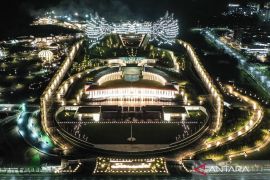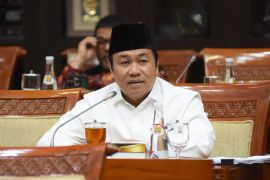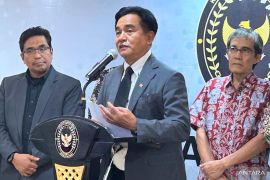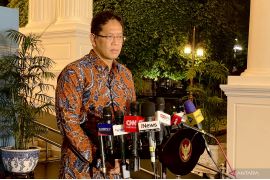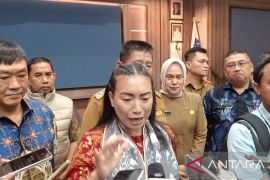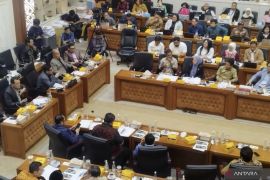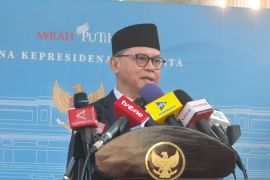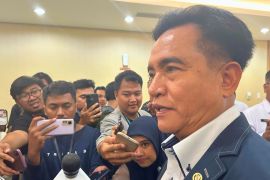The budget projects growth rate at 6 percent, with inflation at 5.5 percent, rupiah exchange rate at Rp10.5 thousand against the U.S. dollar, and the rate of three-month Treasury bonds at 5.5 percent.Jakarta (ANTARA News) - The Indonesian House of Representatives (DPR) passed the national budget for 2014 at a plenary session here on Friday.
"All factions in the DPR agreed with the 2014 budget," said DPR Deputy Speaker Sohibul Iman, who presided over the session.
The budget projects growth rate at 6 percent, with inflation at 5.5 percent, rupiah exchange rate at Rp10.5 thousand against the U.S. dollar, and the rate of three-month Treasury bonds at 5.5 percent.
The projection for the Indonesian Crude Price is set at US$105 per barrel, with oil-lifting set at 870 thousand barrels per day and gas-lifting at 1.24 million barrel oil equivalent per day.
All macro-economic assumptions for the 2014 budget, especially the forecast of economic growth at 6 percent, were set after factoring in expectations of continued volatility in global economic conditions next year, said Finance minister Chatib Basri.
"We are striving to achieve maximum growth, but 6-percent growth is considered reasonable in view of global risks. The government will take extra efforts to achieve the target," he said.
In the 2014 budget, state revenues are set at Rp1,667.1 trillion, while expenditure is projected at Rp1,842.5 trillion. Thus, the deficit will be Rp175.4 trillion, or 0.69 percent of the Gross Domestic Product.
Sources for financing the deficit are expected to come from debt (Rp185.1 trillion) and non-debt sources (negative Rp9.7 trillion).
Revenue from tax is expected to touch Rp1,280.4 trillion, with income tax reaching Rp586.3 trillion, income from value-added tax Rp1493 trillion, and excise Rp16.2 trillion.
Non-tax state revenues, meanwhile, are projected to reach Rp385.3 trillion, of which Rp226 trillion will come from natural resources income, Rp40 trillion from profit made by state-owned enterprises, and Rp94 trillion from other non-tax income.
Three factions - the opposition Indonesia Democratic Party of Struggle (PDIP), the Prosperous Justice Party (PKS), and the Great Indonesia Movement Party (Gerindra) - had given notes on the state revenue.
The parties did not agree with the extension of tax incentives to low-cost green cars (LCGC) because that would go against efforts to control the use of subsidized gasoline and increase income from tax.
The government expenditure for 2014 is projected to be Rp1,249.9 trillion, while transfer to regions will be Rp592.5 trillion.
The projection for central government expenditure includes salary for government employees (Rp263.9 trillion), goods purchases (Rp201.8 trillion), capital spending (Rp205.8 trillion), and payment of debt interests (Rp121.2 trillion).
Expenditure on energy subsidy is set at Rp282.1 trillion, with fuel subsidy accounting for Rp210.7 trillion and electricity subsidy for Rp71.4 trillion. The subsidized oil quota has been set at 48 million kiloliters.
The education budget for 2014 has been agreed at Rp368.8 trillion (or, 20.2 percent of total state spending), which will be extended through central government spending of Rp130.2 trillion and transfers to regions of Rp 238.6 trillion.(*)
Editor: Heru Purwanto
Copyright © ANTARA 2013
